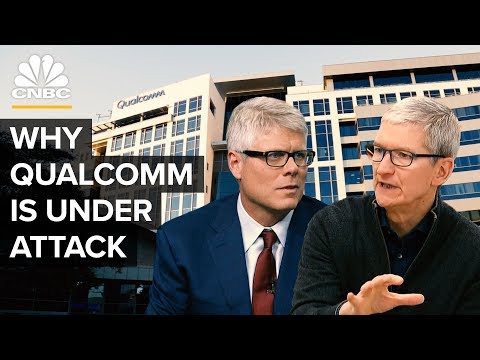TOO BIG TO FAIL: FTC May Need to Back-Off On Its Lawsuits Against Telecom Giant Qualcomm Over National Security Concerns
WASHINGTON – Department of Defense officials are warning the Trump administration to stop targeting telecommunications giant Qualcomm or risk placing the U.S. behind the eight ball on fifth generation cellular development.
Representatives with both the DOD and Energy Department have had sit-down discussions with the Federal Trade Commission to encourage the agency to stop suing Qualcomm, The Wall Street Journal reported Wednesday, citing people familiar with the talks. They argue that financial losses from a court defeat would hamper Qualcomm’s ability to compete with China’s top chip maker, Huawei.
“There’s been a lot of contact from other arms of the government to express these [national security] concerns” to FTC’s commissioners, one of the representatives told WSJ. Securing 5G networks is “vital to the security and prosperity of the United States,” acting Defense Secretary Patrick Shanahan said in a statement.
Qualcomm’s main American competitors — Apple and Intel — recognize the potential for Huawei to surpass the U.S. as well, but they believe that easing up on the world’s largest chip maker might hurt American innovation. “Foreign firms will be positioned to overtake the United States in 5G leadership,” Apple said in one filing. Tech experts say Qualcomm’s security concerns are legitimate.
“The big threat is to Qualcomm’s [licensing] fees and, therefore, its R&D,” Jim McGregor of Tirias Research, a technology consulting firm connected to the industry giant, told WSJ. “That more than anything will affect U.S. competitiveness.” The FTC used a Huawei executive to testify in its case against Qualcomm, leading some industry analysts to cry foul.
The Trump administration is targeting Huawei in a seemingly unrelated matter. The DOD charged the Chinese telecommunications giant in January on several counts of fraud as U.S. President Donald Trump applies more pressure on China’s beleaguered economy. Officials accused executive Meng Wanzhou of bank fraud, wire fraud and violating U.S. sanctions on Iran.
Meng, the CFO of Huawei and daughter of the company’s founder, was arrested in December in Vancouver by the Canadian Justice Department. China warned Canada in December that it faces “severe consequences” if officials don’t release the executive.
Trump meanwhile is pushing U.S. telecommunications companies to blow past China. “I want 5G, and even 6G, technology in the United States as soon as possible. It is far more powerful, faster, and smarter than the current standard,” the president told his Twitter followers in February.




Comments are closed.